You’re listening to Burnt Toast! This is the podcast about anti-fat bias, diet culture, parenting and health. I’m Virginia Sole-Smith.
Today I’m delighted to be chatting with Katy Geraghty. Katy is an actor in New York City, most recently seen as Little Red in Into The Woods on Broadway as well as the national tour.
After graduating from UMass Amherst, Katy made her Broadway debut in the original cast of Groundhog Day in 2017. Since then, she has worked all over the country and internationally, including a year at the Oregon Shakespeare Festival, playing Tracy Turnblad in Hairspray, debuting the new bound for Broadway musical Bliss at the Fifth Avenue Theatre in Seattle, and performing in the North American premiere of & Juliet at the Princess of Wales in Toronto. She is currently—as in when we’re recording this—performing in Sister Act at The Muny in St. Louis.
I asked Katy to come on the show, because she knows firsthand what it’s like to be a fat kid in theater, and a fat professional working actor in theater. We’ve talked a lot about anti-fatness in sports, but we don’t think enough about how much it shows up in the theater world, which has this reputation of being a more inclusive space. I think a lot of us who did theater in high school gravitated there because it’s where the weird quirky kids go and anyone should be welcome.But all too often, that is not true for fat actors.
Katy is being very vocal, and using her success to help lead conversations about what we need to do differently. She has so much great advice for parents. She also has really great advice for kids. So if you have a kid who’s interested in theater, I’m hoping this is one you’ll listen to with them.
If you’re enjoying the podcast, make sure you’re following us (it’s free!) in your podcast player! We’re on Apple Podcasts, Spotify, Stitcher, and Pocket Casts! And while you’re there, please leave us a rating or review. (We like 5 stars!)
Introducing: Burnt Toast Podcast Bonus Content
Almost every week, a podcast interview leads to more conversations and learning than we can fit into one single episode. So I’ve decided to start putting that additional content in one dedicated spot. Sometimes this will be extra audio from the interview itself. Sometimes it will be a short essay or a set of related recs. This week, it’s a bonus interview, with Amanda Rae Melody, a size-inclusive theater director with Raleigh ACT, a children’s theater company in Raleigh, North Carolina. Amanda was a fat theater kid herself, and says she didn’t know her body would be considered a problem until she performed in a church show at age 11. Her aunt, watching the video later, exclaimed, “Oh my God, look at those boobs! Why didn’t they duct tape them to your body?” At 12, Amanda was cast as the wife to an actor in his 40s after the director said, “I have to put you in an adult role because you don’t look like a kid.”
Now, as a mom of three theater-loving kids and a director herself, Amanda is determined to do things very differently. “We never cast based on a child’s size,” she says. “And parents tell me after shows, ‘I had no idea how confident they could be!’” Don’t miss her advice for making sure fat kids get to take up space on stage. (Burnt Toast podcast episodes remain free but this bonus content is paywalled—thank you so much for helping to make the podcast possible.)
PS. Philly Fat Con is coming up! And Burnt Toast is a proud superfat sponsor. It’s going to be an amazing weekend of fat joy, with speakers, movement classes, the Philly Plus Swap and more. All the info and tickets here.
Episode 111 Transcript
Katy
I started acting really young, kind of accidentally. But I’ve been kind of involved in theater since being a small child. And then all throughout high school I was doing a lot of regional theater around me and all of that stuff. I went to college, at UMass Amherst instead of a full theater school, and did a lot of other majors as well as theater. But Broadway for me was very immediate. I booked it right after I graduated, like 36 hours, which is wild.
Virginia
A lot of people must hate you a little bit.
Katy
Everybody asks me, “how did this happen?” I’m like, “Please don’t ask me I’m not the right person to ask.” Anyway, Broadway happened, I worked a lot as a professional actor all over the country. And then in this last year, I was a part of both & Juliet which is about to go to Broadway and then I left that cast to join Into The Woods as Little Red Riding Hood and went on tour with them and it was amazing. I’ve had a really wonderful career, I’ve been very lucky
Virginia
And now you’re working on Sister Act, right?
Katy
I am. I am in Sister Act at The Muny in St. Louis. It’s a two-and-a-half week process and it’s all outside and we’re in habits. So, that’s so hot. It’s so hot. I’ve never been sweatier in my entire life.
Virginia
Oh my gosh, oh my gosh. What a fun show! That’s my childhood nostalgia right there.
Katy
Same. It’s one of my favorite movies and always has been.
Virginia
Well, I definitely want to talk more about your work, but I really wanted to have you on today to talk about the issue of anti-fat bias in theater. And particularly how it impacts kids.
Katy
It’s embedded in theater for sure. In the same way that when you think about a Disney Princess, a certain image comes to mind, when you think of Broadway ingenue, a very similar silhouette and person is in your head. And that’s not just body type, that’s also skin color and so many other things, like standing instead of in a wheelchair. If that’s what it is in people’s heads, that’s what the producers are going to want to give because it’s sparkly and fun and supposed to be the height of romanticizing the idea. So it’s embedded.
And then of course, there is the Hairspray of it all, which I have played so many times, and I always joke that it’s because I’m fat and breathing. I love to watch people get uncomfortable when I say it. There’s Hairspray, so everybody is like, “Oh, you’ll be Tracy, it’ll be fine.” That’s one role in the musical theater canon and people genuinely use it as like, “Oh, you’ll be fine.”
Virginia
Like, “We’ve made so much progress, we have this one role for you.”
Katy
One role. Look out world! Or you get to be the ugly, fat best friend and that kind of stuff. It’s still very much in the sidekick place or being laughed at, which is not always a bad thing. I am a comedic actor! I live off of laughter! But there’s a difference between people laughing with you and laughing at you.
Honestly, growing up in theater and in school, I didn’t always get to do it because I was often working already. But I actually got really lucky because the person who was costuming, all of those things, is a dear friend and neighbor. She did not leave me out in the lurch ever. She also had the capacity to build things from scratch. She had the skills and often, with me, that’s what she had to do. But she did.
I know that that is a budget thing, that is a skill set thing. Yes, there are a few more steps that teachers have to take, but you can and you should. I didn’t experience not being able to fit into a costume because I had somebody to make it for me from scratch. But there were not costumes readily available for me ever. And like, Linda? Icon. Love that woman.
Virginia
Thank you, Linda. We love you, Linda.
Katy
Thank you, Linda. We love you so much. So I got really lucky on that front, because the biggest part of all of it is usually how they’re costumed.
Virginia
That is definitely something I’m hearing from readers and listeners, as well. So many stories of “My theater career ended when in ninth grade, I auditioned for the high school play and was told, ‘we don’t have anything to put you in.’” A similar thing happens in sports when team uniforms often don’t come big enough. So often when we think about the stereotypes we have about fat kids, like lazy or whatever—is it? If you’re not making space for kids in these places, then what? That’s the root of the stereotype. It’s ridiculous.
Katy
Who wants to join the team that you literally don’t fit into? That’s such a big ask for a kid. It can be wildly embarrassing. It’s very othering. When you actually take more than three seconds to think about it, like, why would they join? That’s awful.
Virginia
You’re asking kids to feel unsafe in their bodies to do something that involves their bodies, right? With sports, of course, but theater is also very physical and very much about your body being looked at. To do that in a place where we just told you your body’s not safe and welcome? Okay, yeah, no, I’m staying home.
Katy
Same thing with dance, too! When you’re ordering costumes from catalogs or whatever. I didn’t get into competition dance until I was in high school and my teacher is still a very dear friend and really did the work to make sure that any costume that she was giving us—because we got to vote on the top five or whatever it was. She did make sure always that she never gave us options that didn’t come in my size.
Virginia
That’s great.
Katy
So I always say, I know that I am a wildly confident human being. But I also came from I guess the opposite of a perfect storm of just like all teachers being pretty supportive. So the first time a hateful comment came my way about how I looked, it just bounced right off of me. They had built an armor that I wasn’t even aware I was wearing.
Virginia
Wow.
Katy
I was like, “I just don’t think that’s true.” That was what came to my head. And I will never be able to repay the lack of trauma that my teachers provided me. But at the same time, I’m going to do that by doing this and yelling about the amount of times that it’s wrong, because it’s not like people haven’t said terrible things to my face. They have, but I guess I was just taught early enough that they were wrong and I shouldn’t care.
Virginia
You had the foundation in place. That should be the baseline for all kids and it so often is not.
Katy
Absolutely.
Virginia
I want to go back to what you were saying about being cast in a role where you’re going to be laughed at for your body, because I think that is really insidious, especially because so many school programs are using older shows because of what they can license. There is so much embedded fatphobia in jokes and in the way the fat characters are portrayed.
Katy
I had a moment in one of the 8000 Hairsprays, where our director was talking to “the nicest kids” who are mean to her—which is hilarious, but that’s what they’re called. He was describing the distaste when Amber sees me. And I was in the room. So it’s not like he wasn’t saying these things about me and slightly in my direction as a directorial note. But eventually, he caught himself and he turned around, he was like, “I’m so sorry. I don’t believe that you—you aren’t...” And he just kind of stammered over himself.
And I was like, “I know. But the fact that you just brought it up makes everybody think that that’s not a thing anymore.” Like it’s on the page, right? But then that allowance made me so uncomfortable. Because I was like, “yeah, no, I am aware that I am not a beached whale, as they’re saying. I know.” So it’s kind of uncomfortable when you don’t have the right people directing because there are some truly hateful things said in all sorts of shows.
I’m thinking about Hairspray specifically, especially because like when you think about it, she’s in an audition room when most of the main things are said to her. So you’re already so vulnerable standing in front of a group of people and they’re spewing these hate comments at you. I would be mortified. I would sink into a puddle. It’s great because she overcomes it, but as somebody who’s fat you still have to stand there and take it for a few minutes. And if you’ve heard them before, that’s so hurtful. And if the theater industry is going to capitalize on making fun of me, I’m going to have an opinion.
Virginia
Yeah, that seems right.
Katy
I mean, even in Sister Act—this isn’t in the script anymore. It is on the London recording that this is how you meet Sister Mary Patrick, which is the Kathy Najimy part from the movie, and an amazing character. But there is nothing in the movie that signifies that she needs to be fat. She just is. So she’s just like this joyful person and nothing that she talks about has anything to do with her size, right?
Virginia
Which is pretty remarkable for back then!
Katy
And then the first round of Sister Act came out, the musical, which was in London. When you first meet the nuns, I think it’s called “How I Got the Calling” is how you meet them. This is the song and they’re talking about how they came to Jesus and what they thought about and whatever. And Sister Mary Patrick’s verse is all about starting to see apostles in food. Like, she sees it on a piece of toast, that kind of thing.
And it’s not in the script anymore. I don’t know if they took that out after London. I don’t know if it came to previews and then was taken out or whatever, but it’s not in the Broadway recording. That song is called, “It’s Good To Be A Nun” and there’s nothing that she sings it has anything to do with her weight. She’s actually just exactly how Kathy is, like overly joyful about these things that if you said in a sarcastic tone would sound very different. Which is delightful and so fun to play. But it kind of baffled me, like why would you add it? If it already exists that way, okay, but why add it?
Virginia
We actually have an older show that didn’t have a lot of embedded anti-fatness, and they were like, “Let’s just give a little sprinkle. Let’s make sure we don’t miss that opportunity.” That’s really disappointing, but it’s great that they took it out.
Katy
Yes, I’m thrilled that that’s not a thing at all.
At one point, I was saying that I was in Sister Act to a friend and they were like, “Oh, are you playing the the young postulate?” Because that’s also a part that I absolutely could play. And I said, “No, I’m playing the fat one,”and I laughed about it. And he’s like, “Katy, come on, you’ve got to stop phrasing it in that way.” And I was like, “I will stop phrasing it that way when they stop casting it that way.”
Virginia
This is what’s happening, I might as well just name it.
Katy
Exactly.
Virginia
What about with Into The Woods? Was there anything that you had to navigate there?

Katy
It’s so interesting when you perform a show for very different people who live in very different states. Things are just going to get laughed at differently. So it’s always a joke that Little Red is eating the whole show. It’s in the stage directions and they refer to it many times. She’s supposed to sing certain things with her mouth full. And like, I will never eat a muffin ever, that’s how many I shoved one in my face. But there’s a line later on —because the wolf has now eaten her— the narrator says, “Well, it was a full day of eating for both.” It’s just talking about the fact that she, in every single scene before that, has had a piece of food in her hand.
But I had to watch that show four or five times when I was learning it to replace Julia Lester in New York. And she is, in my opinion, mid-size. I don’t know how she identifies, I’ve never asked, but I am much larger than she is. And her laugh was very clearly the “there’s been food in her hand the whole time.” And my laugh is something different.
You can hear sometimes when people do the surprise chuckle, that one came sometimes. I think we were in North Carolina and I heard like a hateful laugh. And I was like, Oh! Okay sir. And for me, it’s just like, you’re a terrible person. It doesn’t hurt me, but I’m aware of it.
But I’m also aware that all of a sudden Little Red is getting cast as fat everywhere, which is so cool. And my roommate said, “You are aware that this is happening because you exist,” and I just burst into tears. I couldn’t handle that at all.
Virginia
But it’s right. It’s right.
Katy
You just have to have somebody be the first one. There’s something about maybe that armor, like maybe I am well suited to always be the first one because it doesn’t hurt me. So if I need to be the person that’s on the horse, then fine. Give me a sword. I’m already up here. Let’s do it.
Virginia
I feel really protective of you and of all the fat actors who are going play this part. It’s not an explicit fat joke, so the fact that we react differently because of body size is the audience bringing their own anti-fatness to the text. But that’s a tricky nuance. It’s one of those things about art, people are bringing their own things to it. So I don’t know if it would have made sense to rewrite the way food is handled in that show, just because it’s going to trigger an anti-fat laugh. At the same time, there’s a part of me that’s like, “Well, what would it look like to do that?”
Katy
Right. That could be a different conversation for someone who is playing Little Red and it makes them feel uncomfortable.
I’ve been very vocal about how much I hate those muffins all over my Instagram and TikTok. And at one point, somebody was bringing up the fact that she’s about to play this part and she’s really anxious about the eating on stage because she’s fat. She said, how do you handle that? I was like, “well, have you talked to them about it? Like, you don’t have to. Just cut it!” And she said, in all capitals, “I CAN DO THAT!?” And I was like, “Yeah! It’s you on stage! You can have the conversation.” And honestly, if you tell them that it makes you feel uncomfortable, and they don’t respond well, just back them into a corner in their own anti-fat bias right there. Like, easy. Because that’s my favorite thing is always to just keep asking why? Until somebody has big eyes and they don’t know what they’re doing anymore.
Virginia
That’s fantastic.
Katy
I have no problem doing that.
Virginia
I’m curious now that you’ve played Red, do you feel like when you go in for parts, is there a different conversation? Do you feel like that is going to help casting directors see other leads as this could certainly be a fat person?
Katy
The thing that’s so tricky about this all is that people are so slow to undo their own brains. So I do think that while they may not necessarily be thinking about other people in new roles, they are thinking about me, which is step one. Because the more I show up, the more they’re like, okay, well this really works. So maybe we should cast so-and-so who’s like Katy in these ways. Do you know what I mean? I feel like I am a very early step in what could be they start casting a lot of different ways, right? Because I do think that that that’s going to be a slow burn, for sure. But the fact that I’m starting to be more on people’s minds and casting sheets is only a good thing. And it’s an enormous privilege. But I do believe that it is the beginning of a charge. I just don’t know how fast that charge is going.
Virginia
Let’s talk a little bit about kids’ theater programs. What are some changes you’d love to see?
Katy
I think that casting is the first thing that teachers can always fix. I’m a part of this big theatre festival that I do every year that has 6000 teenagers in it, which is so many kids. We’re never supposed to bring up the directors because you never want to pit programs against each other. So you’re supposed to leave them out of it.
But there was this one production—they’d have to be like, 15 minutes long—that I was watching of Seussical. I’ve never seen a bigger group of just wonderful little misfits all of a sudden coming in front of me. Like, what are what are we about to watch? I was so excited.
So I have no idea what gender the kid playing The Cat in the Hat identifies as, and frankly, I don’t care. It’s a cat, right? What was technically the ingenue part in that show—I’ve never seen somebody looks so much like a cartoon, and aside from the fact that this girl had the biggest smile in the world, she looked exactly like Sadness from Inside Out. So cute with a big, big, big smile on her face. Horton was a bigger guy, which is always kind of how that’s cast because he’s an elephant. And then Maisie who’s supposed to be this hot girl, was played by this lanky, ginger boy who slayed.
And the whole time I’m like, this is how theater should be. And I turned around and I said, “who cast this?” And I was breaking tons of rules when I said this, and the teacher raised her hand, very alarmed. And I just said, “Everyone in the room take note, because that’s how you’re supposed to do that.” Everyone succeeded so hard because she just saw them for who they were, right? It wasn’t even the fact that the cute little fat girl got to play the ingenue! It was that everybody was so perfectly suited. It was a huge celebration.
So it starts with casting, where it’s like, just see them for the talent that they have and call it a day. We need to keep telling these kids that just because no one like you has played it doesn’t mean no one ever will. You could be that person. Because people always say, “I’m not the type for that role.” I hate the phrase typecasting, I hate it. It’s so annoying and it’s not true. It’s the smallest minded way of making theater and frankly, ends up being boring. So boring. But people always say “I’m not the type.” You are not the person who currently plays it. But they’re looking for a replacement. So why wouldn’t they be looking for something different?
People literally won’t take auditions because they don’t think they’re the type.
Virginia
We keep ourselves out of the rooms.
Katy
Exactly, this isn’t even just fat people. Why would you take yourself out of this race before you even begin? You have something so specific to bring to this. Why not come in and change their mind? That sounds like fun, frankly!
Virginia
I love that so much.
I’m sure you’d also want to see a greater focus on costuming being inclusive.
Katy
Costumes and set design. Some of my Sister Act castmates and I were talking—and to give credit where credit is due, it’s a very diverse cast, especially with the nuns, as far as body, age, and ability. They did their jobs here at The Muny. We’re very happy with that. However, we were kind of talking about how the risers that we’re on when they learn to sing are really small. And it’s the funniest thing because The Muny is like the biggest stage in the world. Its enormous!
Virginia
Its not like they didn’t have space.
Katy
Right, so it’s it was funny that like the risers ended up being so small. In some ways, it sucks because if you’re going to be diverse in casting, then you also have to think about it through the whole show. Like, don’t just think about the fact that, yes, we did the job and they’re going to be on stage. That might also mean that you need two more feet on each step because you have some bigger bodied people on stage. You need more time to get from point A to point B because one of these people is over 65. If you’re going to cast that way, don’t then punish the people you cast.
Virginia
Don’t make it hard for them to be there and do their job.
Katy
Very much in the same way where it would be somebody in sports playing in a uniform that’s too small. I feel like people do one step and then not the second one. And it’s because diverse casting is like trendy right now. But that still requires work.
Virginia
Well, and it’s interesting that you bring up the physical space of the set, because of course the other big issue in the theater world is audience seats, right? Being way too small for a lot of bodies. Which is not anything I expect you to be able fix.
Katy
I’m going to gut every single theater in the world and start this all over.
Virginia
But it shows that as an industry, they’re not thinking about physical space. They haven’t made that leap yet.
Katy
And again, this is very different in each different space that we were in. Some were better, some were not. There were some places that had really decent wheelchair seating and accessible seating and also closed captioning and ASL interpreted.
But yes. Theater seats are tiny. And that is capitalism at its finest. But, I can’t imagine being a fat little kid who can’t even fit into the seat. It’s like saying, you don’t even deserve to watch it, let alone be in it.
Virginia
So terrible.
Often when parents are picking a program for their kid, they’re not going to have that much choice, right? It’s not like you can just shop around and find the most size inclusive theater program. Depending where you live, there may be a theater program. So what would you tell parents to do if they’re setting out a new program for their child, or if they have a kid already in love with theater, but are saying, I’m noticing the typecasting, I’m noticing the costumes, and so on?
I want to focus on advice for parents of kids in bigger bodies. But if there are things that you think parents of thin kids should be doing, as well, to be good allies, let’s definitely name that too.
Katy
I mean, optics are your friends. If you don’t see any kid that looks like your kid, it’s because there isn’t one and you’re about to put your kid in that situation. And I also mean that for parents with thinner children, because they’re also learning something by that lack. Because their bodies are about to change, too. Like if they come into a program where they did fit, and then they change, then they don’t. That is so common.
So look at who’s on stage and pay attention to who is not exactly the stereotypical theater dancer that’s in your head. Are they are on stage at all? Are they in the front? Are they the ones that look happy to be there? Because if they’re not, then you should probably not be there.
The thing that is hard is that I know that it’s not easy to shop around for programs because arts needs so much more funding and space and availability, and all of that stuff, which is a much longer conversation. But I will say that, in so many ways, theater is going to keep being around. Your kid can always go to college for it. Your kid can always find programs later, when they move to a different place. I would say honestly, if it’s not a safe program, don’t let them stay in it because I think that they would be faster to fall out of love with theater by someone saying hateful things to them than not having the opportunity to do it. So if it’s not a safe space, don’t keep them there.
Virginia
Do you think it’s worth parents trying to have conversations with the people running the program?
Katy
Absolutely.
Virginia
Before you pull the cord, I mean. To see how open they are.
Katy
Oh, yes, I do. And it’s all about talking to your kid too, about their comfort level, like, how do you feel about this. And keep tabs on the deadlines for costumes and such. Because when they say like, “Oh, we’re going to be in costumes at this date, or we’re going to have fittings done by this date,”usually that piece of information is somewhere on the first calendar that you get. And if your kid doesn’t have it by, then ask around. And if your kid is alone in that fact, that’s a red flag because that means that they’re finding a “problem” and they can’t find anything for them—with the biggest eyeroll I can possibly muster. Because if the deadlines are getting pushed, they’re about to be in a not great situation.
There’s so much about theater that is people looking at you. So even though it may seem like a really frivolous problem, it can feel really intense.
I always say that when we’re in technical rehearsals or in previews—when you’re rehearsing all day and the show is a little bit different every night and you’re figuring all of this stuff out—that every actor is just a toddler who hasn’t napped in days, and is ready to get set off at any point in time.
I cannot even begin to tell you the amount of times that I’ve cried because a costume is ugly in that situation, right? It’s not even that it doesn’t fit. It’s just like this is awful. You lose it and it happens. That might seem like such a silly “tantrum” to be having. But like, it’s so personal. And I have them as an adult! So if your kid is having those feelings, please pay attention to them. Because what they like to do also requires being stared at for two and a half hours and if they don’t feel good about that...
Virginia
It may be that the costume is ugly, but that’s really just a way of verbalizing that it is really hard that I am being stared up for two and a half hours like that.
Katy
So I think, talk to them a lot about how they feel where they’re being placed. Do they think it’s funny? Did they enjoy the show? Do they feel good doing the show? Do they feel good in the costume? Like, ask them about how they feel, often, and about specific things.
Virginia
Seems like that would be good to do pretty early in the process, too. I mean, I’m thinking when they first get the script, maybe reading it with them.
Katy
Absolutely.
Virginia
Not that you, as the parent, can necessarily edit the script. But if you read it and you notice some clear fat jokes, is it worth then reaching out to the director to say, how are you handling this moment?
Katy
It’s hard because often you are not allowed to edit much. Licensing is a really, really specific thing as far as the edits that you’re allowed to make or not make. That’s what kind of sucks about theater in that way—that the script is kind of is what the script is.
Virginia
But can we have a moment for how much that sucks? Are people doing racist plays because they’re like, “well, I’m not allowed to edit it?” This is wild to me. In publishing, we have sensitivity readers who read your whole book and look for moments where your bias got in the way of being inclusive. Because writers—especially privileged white writers—don’t notice that we’re saying something that’s racist or otherwise harmful. How theater is not operating with a similar sort of process at this point feels wild to me.
Katy
I honestly have no idea. I’ve been a part now, of a few musicals from the ground up. And like, I’ve been a part of a musical that I believe in and love so much. Also, because it’s a whole new fat person that I just wish that this role existed when I was a kid and I want it for so many people. It’s about four sisters who are all just very different people. And it’s delightful, but I’ve been a part of that since 2018. It almost went to Broadway four times already. It’s not to say that it won’t, it still could. But I know how hard it is to write a musical, right? Outside of the fact that I literally didn’t write it. But I saw it all happen. There are so many people involved in that, there’s so much editing involved in that. There are so many legalities involved in all of that, because it’s been performed. Some of these writers are no longer with us. So then it’s in somebody’s estate and it’s just complicated. So I don’t know. But it should be happening.
Virginia
And there’s a different conversation about how it should be happening when it’s professional theater and how it should be happening when it’s your elementary school play or your middle school play. Kids are much more vulnerable.
Katy
I will say I feel like most of the time, the juniors, like Into The Woods Junior, as opposed to Into The Woods, do an excellent job with that.
Virginia
And I guess what I would want parents to think about if your kid is doing a show that has some embedded anti-fatness in it and changing the line is not possible: Is there someone in the program who can have a conversation with the cast about that part of the script and say something? I did theater very lightly as a child, but I remember being in a production of Bye, Bye, Birdie when I was in sixth grade. And the “How Lovely To Be A Woman” song is pretty cringey in a lot of ways. And this was like, 1991, or something. And the director sat us all down and was like, “We’re going to talk about this song for a little bit.” We’re still going to perform and we have to perform it. But we’re going to talk about what we’re hearing here and all the problems of this. So that would also go a long way, I think for for casts, too, to at least learn from the text in that way.
Katy
Yeah, we have what’s called table work in theater and it’s more or less just sitting down and talking about motivations and where we are in the scene, the sensitive stuff and whatever, etc, etc. And I don’t know why we don’t do table work with people that are young because it’s making it sound like they can’t have a conversation. And they absolutely can.
Virginia
And if you don’t have a conversation, you’re presenting the text to them as something that is just that is okay. You’re like, hey, this is a fine joke. You shouldn’t bump on this. Instead of saying this is a lot, we should unpack this.
Katy
And maybe that’s not a show that you should choose, right? As a teacher, I would think that one of the biggest things—and this is so hard, because you can’t ever please everybody ever. Maybe just because you love Thoroughly Modern Millie so so much because it’s a brilliant musical in so many ways, we just really shouldn’t do it anymore because there’s a lot of anti-Asian hate in there and just wild stereotypes that are awful. You’ll live to see another day If you don’t do Thoroughly Modern Millie. It’s a musical, everybody relax. It’s a musical. That’s what I say to myself so many times when it gets like big feelings because you get so in all of it. I’m just like, it is just a musical. We are singing and dancing. Somebody has scissors in somebody’s brain. This is not that serious. Like, it’s just not.
Virginia
What about advice for kids themselves?
Katy
I think that as scary as it is, just keep talking. Because that’s what I love with the whys of it all, when you just keep asking and then they don’t have an answer for you. You’ll find out that the teacher really doesn’t either know what they’re talking about or knows exactly what they’re talking about and has not great intentions in mind.
It’s a lot easier when you have a pal. In the shows where I’m supposed to be very othered because of my size, like Hairspray for example, that also means that effectively, I’m alone. So if I have an issue, it’s about me and me alone. And that makes it a lot harder for me to advocate for myself because I’m like, “Is this me just being dramatic?” It only applies to me. And that can feel really like I’m just making a mountain out of a molehill. When I get upset about something, I usually give myself the night and then come in the next day with where I’m at.
Like I said, we’re all toddlers without a nap when things are getting intense in theater and you just feel things a little bit harder than you should. But that’s because you are thrown into this and asked to display your emotion in these bright flashing colors and just be perfectly fine with that. So there is some editing involved.
But I’ve had people ask, how are you so vocal about this? And it’s because I pick and choose my battles. When it’s just something silly those are the smaller things to let go. I really reserve the word no for when I absolutely mean it. Because then when I say it, it gets heard. And it’s a full sentence, because they don’t just toss it around all the time.
I hate this kind of advice, but I almost wouldn’t react in the moment. Because then you also don’t have a level head, right? The easiest way to figure out these things is to spit straight facts at these people and if your emotions are involved, it’s not always your friend. Sometimes we don’t have any control over that. I have absolutely had screaming crying moments, I have.
But in retrospect, I would have loved to have been able to go home and cry that out there, and then come back the next day and be like, this is why that wasn’t okay. This is what’s going to happen from now on and if it doesn’t, I’m walking. Being able to say that calmly might have done the job better.
I don’t want to say you have to edit your emotions to feel them. Because I don’t believe in that at all. But bringing a solution is always handled better calmly.
And honestly, for all of the thin people listening, pay attention. I know it doesn’t apply to you. I know. But I have so many advocates in my life. My musical theater female friends are so hot. They just are. They are dancers that are tall and lanky, legs as long as I am tall. Beautiful women. And they are my biggest advocates. I’ve had the most beautiful dancer you can think of cuss someone out in a rehearsal room, because that’s how they were treating me.
Virginia
I love this.
Katy
I feel so championed by them that then sometimes I’m like, “you know what? I actually got this.” They are like, “excellent! Go! I’m here.” Like, they bring out the pom poms and they’re ready. Please, please be allies for each other. You see it happening, I don’t care if it doesn’t apply to you. All you have to do is back that person up. You can see when people are upset.
I do this thing always because we don’t often have a lot of time when something annoys us in theater. So sometimes you are rehearsing while you’re fully crying about something that happened six minutes ago. It happens especially when you’re in a fast process.
I always go over to said cast mate, and say, “Do you need space or do you need a teammate?” And they will let me know which one that is. And if they say teammate, I say, “Okay, am I on your team or do you need me to yell for you? Because I will. What do you need?”
Virginia
I love both of those framings so much. That’s such a useful way to think about how to support each other.
Katy
I think everybody just needs to pay a little more attention because so often in musicals because of the hot topic of diversity and wanting to check all the boxes, one of everything. That means that that person might feel really alone. So just go be a teammate, just stand next to them. It’s not that hard.
Virginia
I love that as a skill we can be building in our kids, really I mean for anything but for theatre in particular, for any sport, any activity. How do you be a teammate? That’s perfect, absolutely perfect.
The last thing I want to chat with you about a little bit is trolls. I mean, every public facing fat person has them. We have them, they are our special little treasures that come with us. You are challenging so many norms and expectations in your work. So, just, how are you doing? How are you doing with the trolls?
Katy
I mean, it’s one of those things that, like, you don’t care until one of them all of a sudden guts you. And there’s no difference in the type of comments that they are with the ones that affects you. The ones that don’t, like, they’re not any more or less mean than the other ones is really just where you’re available that day.
It really is they like caught like the soft underbelly—pun very much intended—of your moment there. Not to shame anybody, but if you want to make yourself feel better just go to their profile. They’re usually an older white man who’s just not a nice person clearly, or it’s like a picture of their cat. They don’t want to show their face. They have exactly the same profile almost all the time. And like, if you are the person that is sitting behind the computer and this is how you really get off on yourself, you are the person that I feel sorry for, not the other way around.
Virginia
Absolutely.
Katy
Plus, there is like a really haughty answer where I’m like, “I’m on Broadway, what are you doing?”
Virginia
I am here for that answer.
Katy
I’m here for that answer, too. I don’t always have the wherewithal to have it. Honestly, I think that those people are not real. Because they aren’t in the way that like they are sitting behind a computer screen yelling about people they don’t know. They are somebody who if you started a conversation with would turn to any easy insults just to make you feel worse. They aren’t real.
If somebody that I knew and loved said something like that to me, it would make me think really hard about like, “Okay, what part of this have I brought on? What have I done in here? What what do I really not deserve in this?” Like, how do we have a conversation from this, but no part of those trolls warrants that response from me.
I hear the voices of my friends and my champions and my family and directors and a photographer that’s taken a boudoir shoot of me, like I’ve had so many people see me in really vulnerable spaces and said beautiful things. And I would rather keep those ones in my head. So yeah, I just do.
Butter
Katy
I’m on a big smell kick right now, like I’m big perfume gal. Jo Malone is expensive AF. It is. But Jo Malone, I’m assuming, is a woman. She is in my head. She’s like this fabulous, coastal grandma type. But there’s just something that that company has figured out about skin chemistry, where it either is going to smell delicious and hang on to you or it’s not. So I go into Jo Malone or Sephora or Ulta or whatever it is, and go and spray them all on like sticks that I’m interested in and then spray it on yourself and shop for the rest of the day and then see how you smell.
Virginia
Oh this is good advice. I am someone who’s totally confused by buying perfume. My favorite aunt had this amazing perfume that like, just I smell it and I’m there. I’m in her garden. I’m with her. I really love it. And I’ve always been like, “How do people find a signature scent like that?” That’s so confusing to me.
Katy
That is how you do that. Go to that store first. Smell them outside of you. Once you found one that you like, spray it on your wrists and neck, and do whatever you’re going to do. Walk around for four hours, sweat a little bit, and then smell yourself. And if it smells great, then that is your perfume. But like, take the time. I’ve been having a really good time with it.
And I found a Jo Malone scent called Nectarine Blossom and Honey. And I literally I put one spritz of it on, and everyone like whips their head. They’re like, what are you wearing? But it’s because I took the time to find out and it’s honestly really fun to figure out your own skin chemistry. That’s my delight.
Virginia
Oh, that’s such a good recommendation.
My recommendation this week is going to be somewhat more amorphous. But I just came off of a really good weekend with my three best friends and our nine children. Between us, we have nine children.
Katy
That’s so loud
Virginia
Four moms, nine kids. There were points where it was so loud, and we would be like, y’all need to go on the porch. You cannot be in the house. There’s too much noise. So my best friend Amy’s parents have a beach house in Ocean City, New Jersey. They were very generous and leant it to us for the weekend. And it was just this epic time of the moms getting time together. The kids getting time together. And yes, it was chaotic. But also, less so than I expected. People slept, it was impressive. The youngest of all our kids is four now, so I think we’ve aged into this place where it can work. The kids sort of form their little groups and go off.
Katy
There might be a sweet spot, right?
Virginia
And there was a beautiful moment when the three oldest kids were singing Matilda, like at top volume on the front porch—some theater kids there in the making. And it was just so much joy.
But the thing I want to really recommend—and this is more for the parents in the audience—is there were a lot of times where the kids would want something but the four of us were having so much fun hanging out that we would just be like, no go away. The moms were having mom time. And the kids got it. They were like, oh, okay, I guess I have to go figure out how to get a snack myself. And I just loved that we were prioritizing our friendship and modeling that for our kids that they were seeing four moms prioritize each other, somewhat over them at times, but that friendship was what they were seeing. So I don’t know if my recommendation is for friendship or for ignoring your children. A little of both.
Katy
Please ignore your children.
Virginia
I think investing hard in your whatever gender your best friends are. But in my case, female friendship. Every time we do it, I’m like, the best the best.
Katy
Just female friendships in general is the recommendation.
Virginia
Yes. That’s the butter.
Katy, this was delightful. Thank you so so much for spending the time with us. Tell folks, where we can follow you how we can support your work?
Katy
Oh, thanks. I am on both Instagram and TikTok pretty actively. I have some concerts and such in New York that are coming up that I will start plugging on all of those handles. But yeah, follow me and talk to me. I’m always very open for conversations with both students and parents alike. I’ve had a lot of messages that come in, but I never don’t want to talk. Please just message and ask, let’s have this conversation.
Virginia
Well, and I just want to say on behalf of all the spectacular fat kids who want to act like thank you for for being this representation. We really need it and it’s awesome. So thank you for doing that.
The Burnt Toast Podcast is produced and hosted by me, Virginia Sole-Smith. You can follow me on Instagram.
Burnt Toast transcripts and essays are edited and formatted by Corinne Fay, who runs @SellTradePlus, an Instagram account where you can buy and sell plus size clothing.
The Burnt Toast logo is by Deanna Lowe.
Our theme music is by Jeff Bailey and Chris Maxwell.
Tommy Harron is our audio engineer.
Thanks for listening and for supporting anti-diet, body liberation journalism!

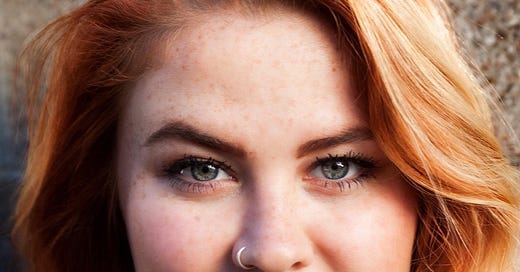



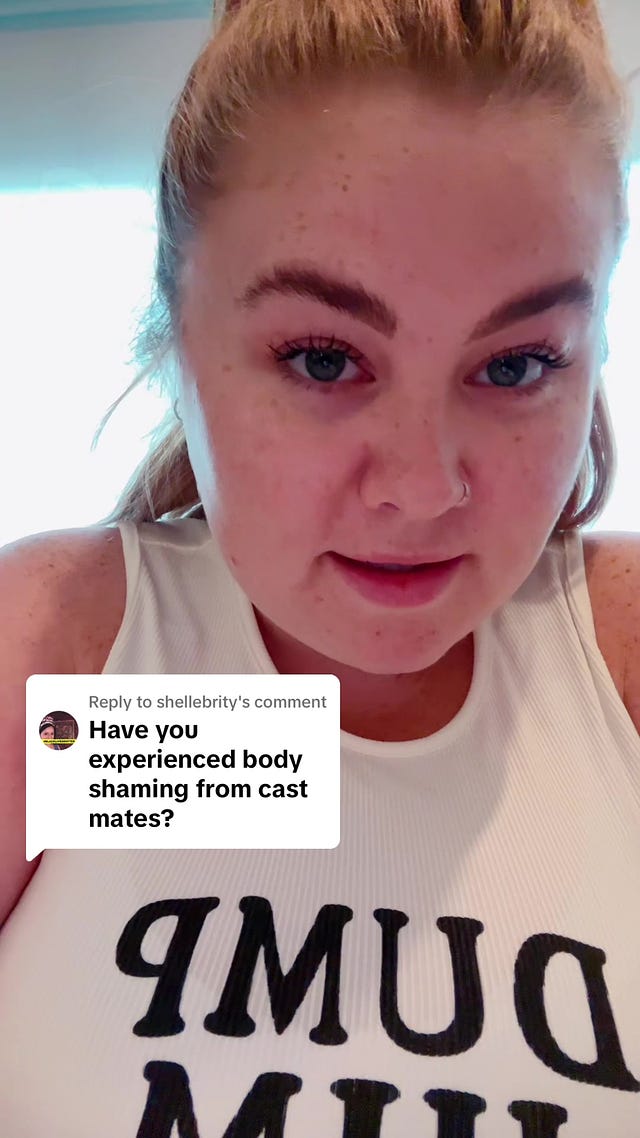




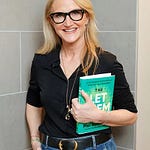
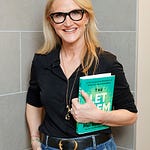
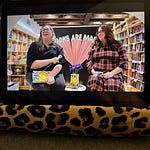




Share this post